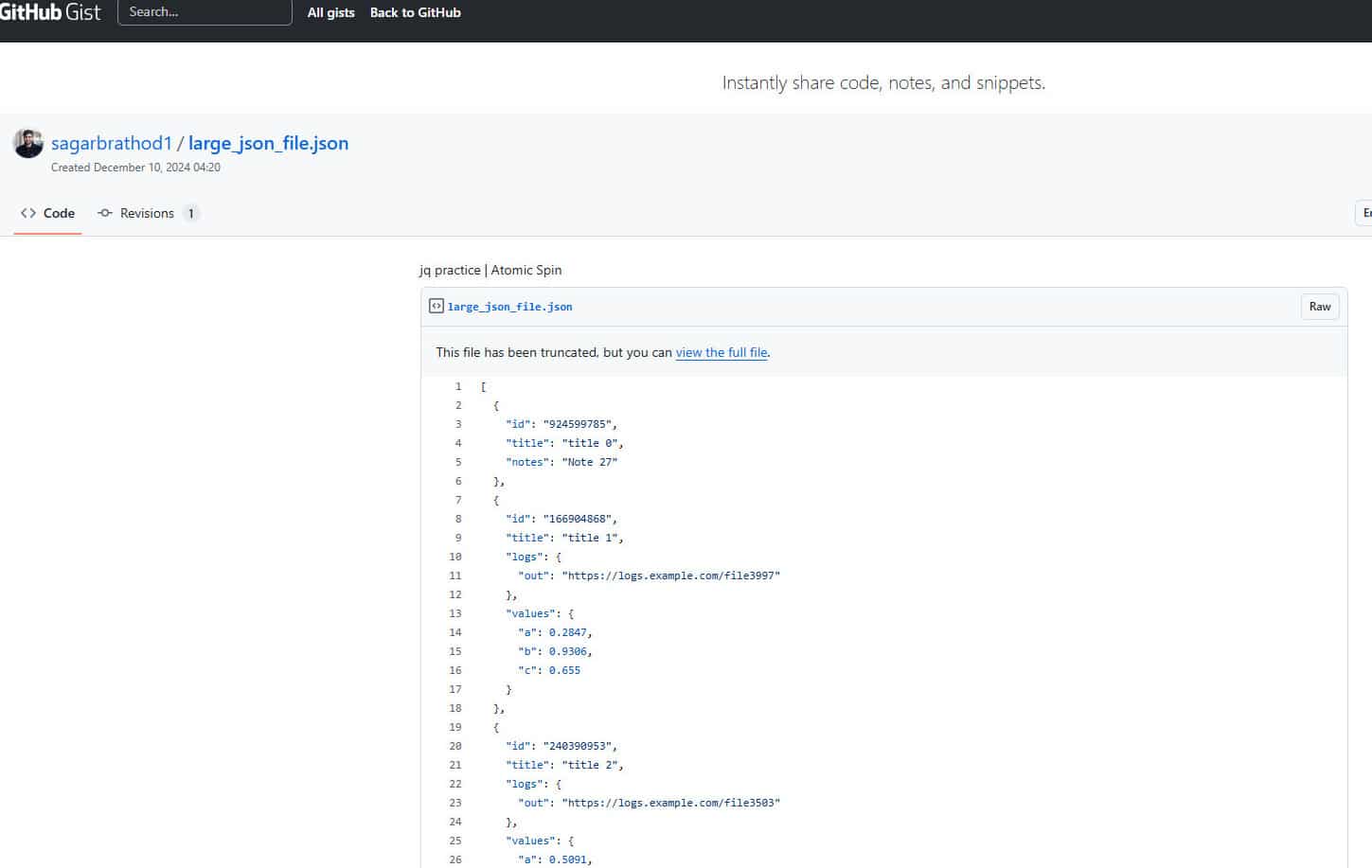Have you ever had to deal with large amounts of JSON data? Whether you’re parsing API responses, analyzing log files, or managing configuration data, you need a tool that’s both powerful and easy to use. Enter jq: a lightweight command-line JSON processor that makes parsing and transforming JSON data a breeze.
You can install jq using your system’s package manager. Let’s explore some common jq operations using this example JSON file. Feel free to follow along!
Basic JSON Formatting
The simplest use of jq is pretty-printing JSON data:
jq '.' large_json_file.json
This command takes your JSON input and formats it with proper indentation and color coding. Need a compact version instead? Use the -c flag:
jq -c '.' large_json_file.json
Extracting Specific Fields
Let’s say you want to extract all IDs from an array of objects. Here’s how:
jq '.[].id' -r large_json_file.json
The .[].id pattern means “for each element in the root array, get the id field”. The -r flag outputs raw strings without quotes.
Creating New JSON Structures
jq excels at transforming JSON structures. Here’s how to create a new object with selected fields:
jq '.[] | {id: .id, log: .logs.out}' large_json_file.json
This creates a new object for each array element, containing just the id and nested logs.out fields.
Filtering Data
jq‘s select() function is your best friend for filtering data. Here are some common patterns:
Check for non-null fields:
jq '.[] | select(.logs != null)' large_json_file.json
Check if a field exists:
jq '.[] | select(has("logs"))' large_json_file.json
Filter based on numeric calculations:
jq '.[] | select((.values.a + .values.b) > 1)' large_json_file.json
Check array lengths:
jq '.[] | select(.errors | length > 0)' large_json_file.json
Why Use jq?
- Speed: jq is blazingly fast as it was written in C and optimized for processing large JSON datasets.
- No Dependencies: It’s a single binary that’s available on most systems.
- Pipeline Friendly: It works great with other Unix tools like curl, grep, and sed.
Congratulations! You’ve just scratched the surface of what jq can do. The official jq manual is an excellent resource for learning more advanced features. With its powerful filtering capabilities, lightning-fast performance, and Unix-friendly design, jq is an invaluable tool for any developer working with JSON data. Start incorporating jq into your workflow today, and you’ll wonder how you ever managed JSON without it!

